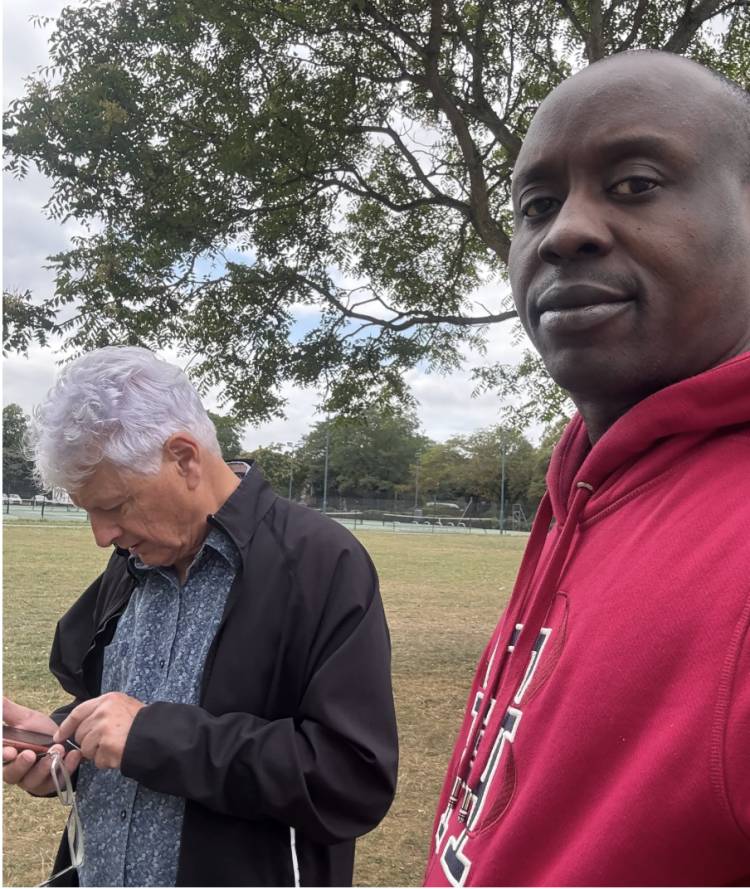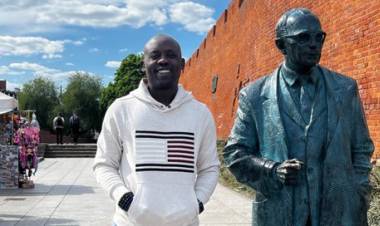Churchianity Vs. Christianity III
Churchianity Honors Men, Not Christ
In Ezekiel 34, after rebuking Israel's shepherds who abused the flock, God said, "Because my flock lacks a shepherd and has been plundered and has become food for all the wild animals, and because my shepherds did not search for my flock but cared for themselves rather than for my flock, hear the word of the Lord! I am against the shepherds and will remove them from tending my flock and rescue the sheep from their mouths. I myself will search for my sheep and look after them. I will be their shepherd, tend them in good pasture, and care for them myself. I will shepherd the flock with justice. I will place over them one shepherd, my servant David, and he will tend them and be their shepherd. I will make a covenant of peace with them."
This prophecy was written about 500 years after King David. It is a prophecy of Jesus, who came from the line of David. In the New Covenant, Jesus himself is our shepherd. We see this in John chapter 10, which continues the narrative of Ezekiel. Jesus says in John 10:11-15 (NIV): “I am the good shepherd. The good shepherd lays down his life for the sheep. The hired hand is not the shepherd and does not own the sheep. So when he sees the wolf coming, he abandons the sheep and runs away. Then the wolf attacks the flock and scatters it. The man runs away because he is a hired hand and cares nothing for the sheep. I am the good shepherd; I know my sheep and my sheep know me— just as the Father knows me and I know the Father—and I lay down my life for the sheep."
The New Testament has about a dozen references to Jesus himself as our pastor, but only one verse in the New Testament uses the noun "pastors" for church leaders, and it is in the plural. Churchianity is offended when I say, "Jesus is my pastor," but my language is thoroughly biblical and theirs is not.
Churchianity thinks that the emphasis on Jesus himself as my pastor will make me unstable and liable to going astray. The opposite is true. A few years ago, the pastor of a major church here had a big scandal. I already expected it, but some of my friends were so hurt and struggling. I remember a few times when people said in amazement, "We're all in this big battle, but GSW is just as happy as ever, doing what he always does, praying for people everywhere." What was the difference? I never called that person, "My pastor." I believe there are pastors in the body of Christ, but Jesus himself plays the primary role of "pastor" in my life, because anybody else will always fall short!
Because I call Jesus himself, "My pastor," my faith is intact and growing stronger, but many people have had their faith shaken because they built their foundation on a "pastor" other than Jesus.
Churchianity doesn't Understand That "Pastoring" is a role for many people in the body of Christ
The only verse in the New Testament that uses the noun "pastors" to refer to church leaders is Ephesians 4:11, and it's in the plural. If you are a Christian, Jesus is your pastor, and God gives you "pastors," plural, not one church leader who is your pastor. The roles of church leaders as pastors are limited and secondary to the role of Jesus himself.
I can tell you about many people who have been "pastors" in my Christian development, even though I reserve the singular possessive term "my pastor" for Jesus alone.
The New Testament uses the verb "to pastor" in a few places to describe what elders and bishops do. As some scholars do, I believe that "elder," "pastor," and "bishop" are the same roles in the New Testament. These terms are interchangeable. The point is that this is a lighter role shared by more people and secondary to the role of Jesus himself in the Biblical paradigm.
In the paradigm of "churchianity," the role of a pastor is often a heavy role for one person and supplants the role of Jesus himself in the life of a believer.
Churchianity Doesn't Understand That Mutuality Is Essential In A Healthy Church
Churchianity exaggerates the role of a pastor into something that scripture never envisions, so that he is seen as the man of God, the priest, and the spiritual father for everybody else. At the same time, it doesn't know how to receive mature Christians because its paradigm is all about immaturity and unhealthy dependence that runs contrary to Jesus' example when he said, "It's better for you that I leave, because you will receive the Holy Spirit."
I ask Christians stuck in the churchianity paradigm, "Who was the apostle Paul's pastor? How about Peter?" Church leadership is scriptural, but the idea that everyone must have a specific person whom they call "my leader" is not. That's a construct of churchianity.
Even Jesus is not called our "spiritual father," but our brother. The "one-another" commands of the New Testament emphasize mutuality, and the apostle Paul repeatedly used language like "brothers," referring to how he related to even new Christians. Christians should always seek fellowship with the body of Christ, be teachable, and receive from others. However, they should not forever be at the stage of needing basic discipleship.
The Apostle Paul was in fellowship and relationship with other pastors and leaders, but it was not that Peter was Paul's pastor, or Paul was Peter's pastor. Even though Peter was an apostle before Paul was saved, Paul rebuked him to his face. There was mutuality among elders and even between elders and new Christians. In 1st Peter 5:1, Peter appeals to his "fellow elders."
Don't you think it's a little arrogant to meet a fellow Christian for the first time and immediately assume that he needs you to be his pastor? By God's grace, there are things in my life that can challenge and help other pastors and leaders in my city. But the assumption that I need a pastor, rather than considering that we can grow together in Christ, makes mutuality impossible. When your paradigm for "pastoring" makes mutuality impossible, healthy Christian relationships are impossible, and the body of Christ does not function as it should.
People all over the world call me for prayer and counsel. Pastors and missionaries have come to me for counsel, prayer, and encouragement. Some have told me that something I shared changed their life, and many value my input. If I thought within the paradigms of churchianity, I could say I've been a "pastor to pastors." Yet I don't think like that. It's mutuality. We're friends. We receive and learn from each other. Yet churchianity makes it impossible to have that same relationship with many local pastors.
There are other Christians whose examples I want to imitate. I see something in their lives and say, "I want that in my life." However, none of those people are very close to me geographically. Many of those older Christians I most respect, who could be mentors in some sense, also value the grace God has given me and relate to me as a brother and friend.
I have a wide network of like-minded friends through Facebook, X and other media. Churchianity thinks that is somehow not valid like their organizations are, but we have much more relationship and everything church is supposed to be over Facebook, X and Zoom than I would have in many churches by calling their religious organization CEO "my pastor." There are brothers I respect whom I can ask for advice and I'm open to receiving correction from, but all of those relationships are online, not in churchianity, and they are mutual. Churchianity thinks such online connections aren't valid. Were the apostle Paul's letters not valid because they were written from a distance?
I've experienced far more teaching each other, confessing our sins to each other, encouraging each other, praying for each other, exhorting each other, miracles, testimonies, and godly counsel in the functioning of the body of Christ over Facebook, X, Whatsapp, Messenger and other media than I ever have in churchianity's programs.
My online community includes a few hundred people who preach the gospel with power, healing the sick and casting out demons. Several of them have raised the dead in Jesus' name. We have a strong relationship of mutual respect, cheering each other on, and encouraging each other. We care for each other. It's not "I'm your pastor," or "You're my pastor," although we recognize elders and leaders. I could say, "I appreciate this person so much. He challenges my faith." Yet he would say the same thing about me. A one-way "my pastor" relationship makes mutual edification impossible.
A friend shared this with me
"One more extreme example of my experience with Churchianity and its dysfunctional paradigms for leadership was a cell group I joined when I moved to Goiania. I just wanted fellowship, but not so many other things the institution had to impose on me. I loved the people, but the denomination had some very unhealthy leaders higher up and was becoming cult-like.
The person who was leading the cell group was about to get married, so the church appointed another "leader" who was supposed to be "pastoring" the group. Of course, he had to teach just what the senior pastor told everybody to teach during the cell groups. Even seminary-trained pastors could not share what the Lord showed them when they opened their Bibles, but had to preach what the senior leader instructed them.
They appointed a young man, barely in his 20s, who was extremely immature but zealous to move up in the religious hierarchy. He would defend anything the senior leader said, regardless of the Bible. The young man didn't even have a solid foundational understanding of salvation.
I had given my life to the Lord before he was born, read the Bible many times in many languages, and been walking in God's power with signs and wonders for 15 years. But Churchianity said he was my "leader" and I needed to learn from him, and that excluded him from learning from me! Actually, that paradigm limited how much the whole group could receive from what I had to share. It hindered me from sharing the grace God has given me with the body of Christ."
In another case, a senior pastor (whom I never called "my pastor") called me his "son." Such language is common in churchianity. He was famous all over the country, and people nearly worshipped him. He expected me to listen to, submit to, and learn from him. I see many obvious flaws in him that I could help him with if he were willing to learn from me, as I am willing to learn from him, but since he is the pastor and spiritual head, he dares not learn what could make his life better from someone like me, which was to his detriment. The pastor's title made him think his role was to be my spiritual guide, and my role was to listen, submit, and serve him, but without mutual submission or mutual service!
The paradigms of churchianity, judging by mere appearances, judge me to be isolated from the body of Christ, a lone ranger, unhealthy, unaccountable, unsubmissive, and not properly connected to the church because I say, "Jesus is my pastor." But isn't it ironic that churchianity's paradigm for pastoring isolates the ones they call pastors. It disconnects them from mutuality and healthy fellowship with the church, separating them and making them unaccountable, uncorrectable, and often unsubmitted to God's word and to the body of Christ.
Pastors are "the ones who speak" in churchianity, but having only one person speak is disobedience to many commands of scripture regarding how we function as the body of Christ. 1st Corinthians 14:29 says that when a person is speaking in the meeting of believers, the others should test what is said. However, churchianity makes pastors unaccountable when what they say is not subject to questions or being tested by the body of Christ. Churchianity says I'm "Unaccountable," but the reality is that the paradigms of churchianity make THEIR leaders unaccountable. I once said to my wife about a local church, "They need so much help!" She replied, "Jonathan, they think you need help!"
PS: Having a discussion on Christianity Vs Churchianity with a friend in the UK.
He was raised a Catholic, believes in the supernatural, and walks in great power and anointing.
He said he had to start attending conferences outside of his local church in order to meet people who share the same Christian values and spiritual leading in common with him as a believer
He found fellowship but not within the church where he was born and raised.
















Comments (0)
Facebook Comments (0)